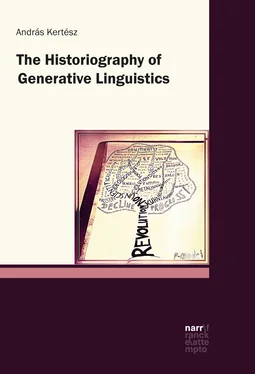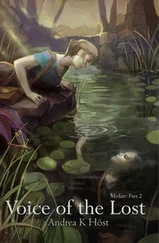1 Introduction
1.1 The problem (P)
John E. JosephJoseph, John E. (1995) describes linguists in his seminal review article entitled The Structure of Linguistic Revolutions – the title of which alludes to Thomas S. KuhnKuhn, Thomas S.’s famous book – in the following way:
Rare is the linguist who does not consider himself part of a linguistic revolutionrevolutionlinguistic accomplished in recent memory, or in progressprogress, or both. […] Revolution […] is the master plot for linguistic historyhistory, what gives sense to our work and careers, what makes it worth getting out of bed in the morning (JosephJoseph, John E. 1995: 379; emphasis added).
He characterizes the Department of Linguistics and Philosophy at the Massachusetts Institute of Technology as follows:
The department is unique in having fostered over the last forty years not one, but easily a dozen large-scale or small-scale linguistic revolutionrevolutionlinguistics. Most of them have been revolutions against earlier revolutions spawned there as well. More amazingly still, many of them have been led by the same man, revolting against his own program of a few years before: Noam ChomskyChomsky, Noam, Serial Revolutionary (JosephJoseph, John E. 1995: 380; emphasis added) .1
Noam ChomskyChomsky, Noam is not the only outstanding staff member of the above mentioned department: another was Thomas S. KuhnKuhn, Thomas S. (1922–1996), author of The Structure of Scientific Revolutions , who brought about a fundamental change concerning previous ideas about the development of science, and who – like Chomsky himself – became one of the most quoted, the most frequently praised, and at the same time the most harshly criticized authors of the twentieth century. While according to JosephJoseph, John E. (1995: 380), there was no professional cooperation documented between Chomsky and Kuhn, their works are linked in a peculiar way by the term ›scientificscientific revolutionrevolutionscientific‹. Kuhn proposed an approach to the historiographyhistoriography of science the fundamental idea of which is that the development of the natural sciencesciencenaturals is not of a cumulative nature, but, rather, is made up of paradigmparadigm shifts that are the results of crises and revolutions questioning the previous scientific worldview (Kuhn 1962 [1970]). Against the background of these ideas, Chomsky’s activity has been termed ›Chomsky’s revolution‹.
Nevertheless, the association of the term ›revolution‹ with the historyhistory of generative linguistics raised heated debates. Some of the historiographicalhistoriography approaches to generative linguistics do not doubt the thesis claiming its revolutionaryrevolutionary nature, along with the applicability of KuhnKuhn, Thomas S.’s framework to the history of linguistics. Others reject this term, this thesis and this framework, and use significantly different labels, ranging from ›revolution‹ in a non-KuhnianKuhnian sense through, for example, ›evolutionevolution‹, ›coupcoup‹, ›erosionerosion‹, ›spurious sciencesciencespurious‹ to ›unscientific revolutionrevolutionunscientific‹. Thus, the history of generative linguistics poses a challenge for the historiography of linguistics. It poses a challenge because, first, the historiography of generative linguistics, similarly to that of all sciences, needs to find a framework – including its central hypothesis and its basic terms – which might be used to investigate its object of investigation, namely, the description of the rise, the internal development and the significance of generative linguistics, as well as its relation to other linguistic trends.
Second, the heated debates mentioned above, and the, at times, radical approaches to the topic, make this task a very difficult enterprise primarily because the literature is considered to be extremely biasedbias in nature.
In order to meet this challenge in the present book, we will raise the main problem of the historiographyhistoriography of generative linguistics as follows:
| (P) |
What historiographicalhistoriography framework , central hypothesis and basic terms can account for the historyhistory of generative linguistics? |
1.2 The structure of the book
Our line of reasoning consists of two parts, in accordance with our problem, marked (P) and our aims (A)(a)-(c), sketched in the Preface.
In Part 1, we will examine 22 different approaches to the historiographyhistoriography of generative linguistics which offer alternative solutions to the problem in (P). We do not wish to analyze and evaluate the achievements of generative linguistics; instead, we will focus on how historiographers of linguistics analyze and evaluate its historyhistory . Accordingly, the first part of the book is of a metahistoriographicalmetahistoriographical nature.
Within this part, in Chapter 2 – following aim (A)(a) mentioned in the Preface – we will reconstruct the alternative solutions to (P) as proposed in the relevant literature, and thereby highlight their diversity. In order to meet the philological requirements of historiographyhistoriography, we will document our claims by making extensive use of quotations and citations.
As the next step in our reasoning – in line with aim (A)(b) –, in Chapter 3 we will give a metahistoriographicalmetahistoriographical evaluation of the historiographicalhistoriography approaches surveyed in Chapter 2. We will examine to what extent and in what way they meet a set of criteria that historiographical approaches are expected to meet.
Part 2 of the monograph contributes to the field of historiographyhistoriography : in accordance with aim (A)(c), we will outline a possible novel approach to the historiography of generative linguistics. Within Part 2, Chapter 4 proposes a historiographical extension of Kertész &Kertész, András RákosiRákosi, Csilla’s (2012) p-modelmodelp- of linguistic theorizing.
Chapter 5 is a case study, with which we wish to illustrate that the historiographicalhistoriography application of this model conforms to the criteria discussed in Chapter 3.
Chapter 6 tackles the open questions which have to be faced by any approach to the historiographyhistoriography of generative linguistics, and consequently, by our own as well, the detailed discussion of which, however, would go beyond the scope of the book.
Finally, in Chapter 7 we will summarize our major findings.
Before we take the first step of the investigation we have just sketched out, let us give a brief overview of KuhnKuhn, Thomas S.’s ideas about scientificscientific revolutionrevolutionscientifics, which constitute the main point of departure for approaches to the historiographyhistoriography of generative linguistics, as well as the present monograph.
1.3 Background information: The KuhnianKuhnian approach to ›scientificscientific revolutionrevolutionscientific‹
In order to highlight KuhnKuhn, Thomas S.’s impact on our understanding of how science works, let us start with remarking that in the first half of the twentieth century, it was the standard view of the analytical philosophy of sciencephilosophy of science that determined the norms of scientificscientific inquiry. This view subsumes two dominant trends: one is logicallogic positivism focusing on the inductiveinductive method and striving for the verification of empirical claims (associated with the work of Rudolf Carnap), the other is critical rationalism centering on the hypothetico-deductivedeductive structure of theories and characterizing empirical claims as being falsifiable (whose main figure was Karl PopperPopper, Karl R.).1 Some of the main tenets of the standard view of the analytical philosophy of science, with respect to Kuhn’s ideas, which challenged it, are as follows:
Читать дальше












